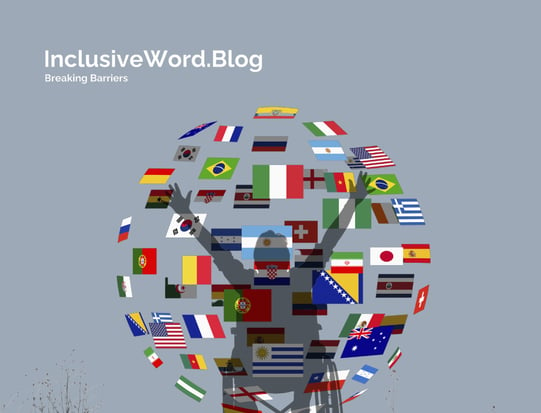The International Day of Persons with Disabilities: A Platform for Social Justice
The annual observance of the International Day of Persons with Disabilities (IDPD) is scheduled to take place at the United Nations Headquarters in New York on December 3, 2024. This significant event is organized by the United Nations Department of Economic and Social Affairs (UN DESA) in collaboration with the Global Disability Innovation Hub and the Global Network of Young Persons with Disabilities. The aim is clear: to promote the rights and well-being of persons with disabilities across all spheres of society and development.
NEWS
11/11/20243 min read


The annual observance of the International Day of Persons with Disabilities (IDPD) is scheduled to take place at the United Nations Headquarters in New York on December 3, 2024. This significant event is organized by the United Nations Department of Economic and Social Affairs (UN DESA) in collaboration with the Global Disability Innovation Hub and the Global Network of Young Persons with Disabilities. The aim is clear: to promote the rights and well-being of persons with disabilities across all spheres of society and development.
The Origins of IDPD
The International Day of Disabled Persons was officially proclaimed in 1992 by United Nations General Assembly resolution 47/3. Originally named the "International Day of Disabled Persons," the observance was renamed in 2007. The day serves to promote an understanding of disability issues, and to mobilize support for the dignity, rights, and well-being of persons with disabilities. Over the years, the scope of the day has evolved, now focusing on highlighting the achievements and contributions of people with disabilities, while also raising awareness about the barriers they face.
This Year’s Theme: Amplifying Leadership for an Inclusive Future
This year’s theme, "Amplifying the Leadership of Persons with Disabilities for an Inclusive and Sustainable Future," places a spotlight on both the progress made and the challenges that remain in the realm of disability rights and accessibility. The event will feature a series of high-level panel discussions, presentations, and cultural performances by individuals with disabilities. Keynote speakers will include global leaders, disability advocates, and influencers who have made substantial contributions to advancing the rights of persons with disabilities.
Highlights of the commemoration
One of the standout features of this year’s event will be the presentation of the United Nations Disability Inclusion Awards. These awards recognize outstanding efforts and initiatives that have significantly improved the lives of persons with disabilities. Additionally, the event will serve as a platform for sharing innovative solutions and best practices for creating a more inclusive and accessible world. The IDPD 2024 promises to be an inspiring and impactful event, bringing together diverse voices to celebrate achievements and envision a more inclusive future.
Social Movements of Disability Rights and Social Justice
The IDPD is more than just an event; it is a reflection of the broader social movements advocating for disability rights and social justice. These movements have been instrumental in pushing for policies and practices that recognize and respect the rights of persons with disabilities. From grassroots activism to global advocacy, the disability rights movement has a rich history of fighting for equality, accessibility, and inclusion.
The Early Years: A Fight for Recognition
The early disability rights movement, which gained momentum in the mid-20th century, was marked by efforts to secure basic civil rights for persons with disabilities. Activists fought against segregation and discrimination, demanding equal access to education, employment, and public facilities. The establishment of organizations such as the American Disabled for Attendant Programs Today (ADAPT) played a crucial role in advocating for the rights of individuals with disabilities.
Legislative Milestones
One of the significant achievements of the disability rights movement was the passing of landmark legislation. The Rehabilitation Act of 1973 in the United States, particularly Section 504, was a groundbreaking law that prohibited discrimination on the basis of disability in programs receiving federal financial assistance. This was followed by the Americans with Disabilities Act (ADA) of 1990, which provided comprehensive civil rights protections to individuals with disabilities in various areas, including employment, public accommodations, transportation, and telecommunications.
The Global Perspective
Disability rights advocacy is not limited to one country; it is a global movement. The adoption of the United Nations Convention on the Rights of Persons with Disabilities (CRPD) in 2006 marked a significant milestone in international disability rights. The CRPD is a human rights treaty aimed at protecting the rights and dignity of persons with disabilities worldwide. It has been ratified by numerous countries, committing them to uphold and promote the rights of individuals with disabilities.
The Road Ahead: Challenges and Opportunities
Despite the progress made, significant challenges remain in achieving full inclusion and participation of persons with disabilities in all areas of society. Issues such as accessibility, employment, education, and healthcare continue to pose barriers. The IDPD provides a crucial platform to address these challenges, share innovative solutions, and foster a commitment to building a more inclusive and accessible future.
As we look forward to this important day, it is essential to continue advocating for the full inclusion and participation of persons with disabilities in all areas of society. The IDPD 2024 is not just an observance; it is a call to action. It is an opportunity to amplify the leadership of persons with disabilities and to work collectively towards an inclusive and sustainable future
The annual observance of the International Day of Persons with Disabilities serves as a powerful reminder of the importance of disability rights and social justice. It is a day to celebrate the achievements of individuals with disabilities, to raise awareness about the barriers they face, and to promote their rights and well-being. As we prepare for the IDPD 2024, let us commit to continuing the fight for equality, accessibility, and inclusion for all persons with disabilities.
InclusiveWorld.Blog
Breaking Barriers, Building Bridges
Contact us:
© 2024. All rights reserved.
Follow us
